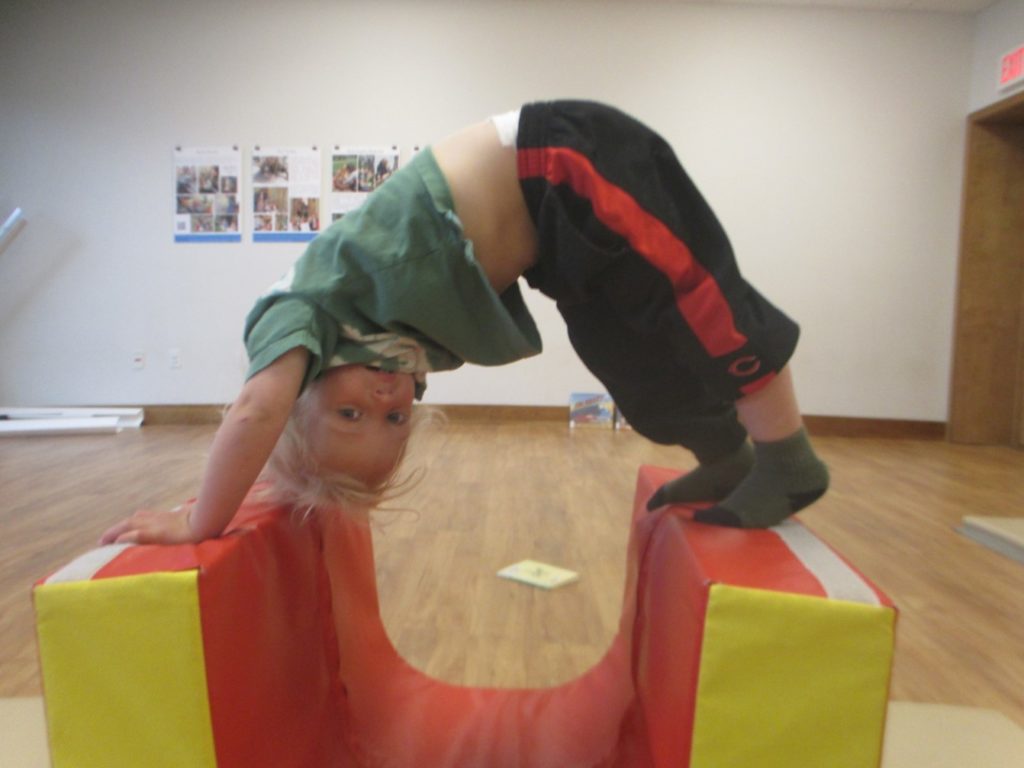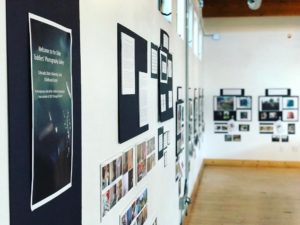
By Erin Ford and Sarah Wedding, Early Childhood Center Toddler Teachers
What began as fascination with a digital camera has grown into an exhibit of photography by young children who attend the Colorado State University Early Childhood Center.
Wolverine Farm Letterpress & Publick House is hosting a display of the children’s photos through the month of January. The exhibit grew out of the educational philosophy of the ECC’s Reggio Emilia-inspired Approach – viewing children as capable and competent members of their learning communities.
 Fascination with digital cameras
Fascination with digital cameras
At the beginning of June 2017, some of the children in the Older Toddler Room began to express an interest in taking photographs with the digital camera that teachers use to document children’s learning. While hesitant at first because a digital camera is an expensive piece of technology, teachers recognized that using the camera would be a meaningful way for children to learn about technology, which is becoming increasingly present in their daily lives, and for children to communicate their knowledge in a new way.
The children quickly became quite fascinated with using the camera, using it daily in the classroom and on the playground. Teachers learned that the classroom digital camera was sturdy and able to withstand the toddlers’ use and that toddlers respected the camera as a tool.
As more children became interested in using the camera regularly, teachers brought in additional spare digital cameras from home. Teachers placed the cameras at the children’s level, so that the children could access them freely, without the need to ask a teacher for permission.
Next steps

For the next six months, children had exposure and access to the classroom cameras. For example, each child had a turn to take the classroom camera home for a weekend. Children brought classroom cameras on a class field trip to a local pumpkin patch and some children brought classroom cameras on family vacations. Teachers also made cameras accessible during planned classroom experiences and invited individual children to take the role of the documenter, which was previously reserved for teachers.
Through practice and exposure to ideas about cameras and photography, the way children took photographs and what they took photographs of changed over time. In the beginning, children worked hard to master how to use the camera such as turning it on and off, which way to point the lens, and how to keep the camera steady, as well as the fine motor skills of holding the camera and pushing a button at the same time.

Teachers noticed that many early pictures included self-portraits; images covered by their fingers; and photographs that were blurry, due to camera movement. As they became more familiar with how to operate the cameras, children seemed to have more control over what was included in the frame of the viewfinder. This led to photographs that captured: detailed scenes from our classroom life and family interactions, close ups of textures and patterns, as well as objects and people that were meaningful to the children.
Reggio Emilia- inspired approach

Looking back after six months, teachers were excited to discover that this project highlighted so many of the Reggio Emilia philosophy principles. For example, the project was born from the idea that children are competent and capable. Teachers also worked off the premise that children were constructing their own learning and that the role of the teacher in a Reggio classroom is not only to be a mentor and a guide but also to be a learner alongside the children.
The ECC is a laboratory school that trains Human Development and Family Studies (HFDS) interns and provides them with opportunities to complete hands-on educational projects. The HDFS intern in the Older Toddler Room during the Fall 2017 semester completed her project in the classroom and the children used the cameras to document several of the learning experiences that she planned.
Wolverine Farm Letterpress & Publick House is located at 316 Willow St. in Fort Collins. The toddler’s exhibit will be on display during the month of January.
The Early Childhood Center is part of the Department of Human Development and Family Studies in CSU’s College of Health and Human Sciences.